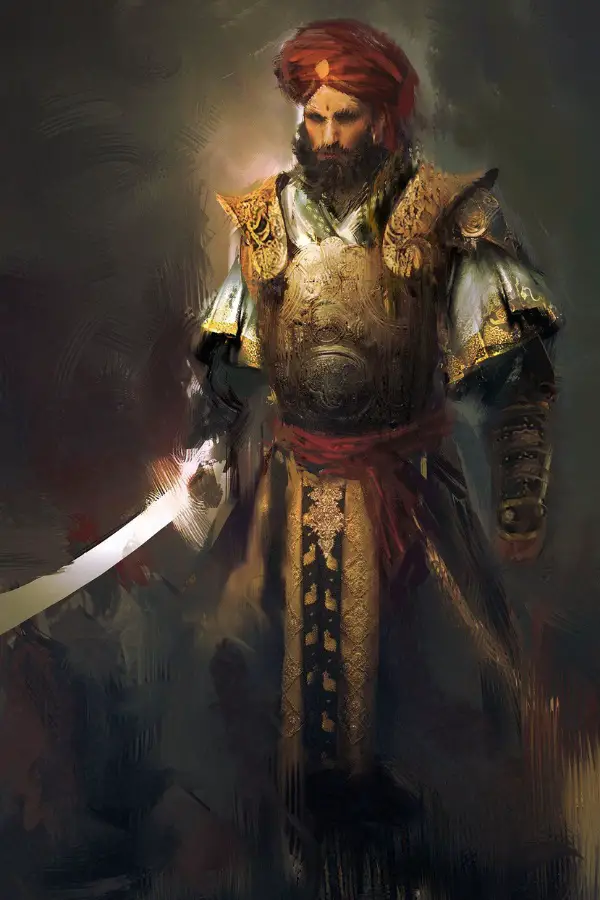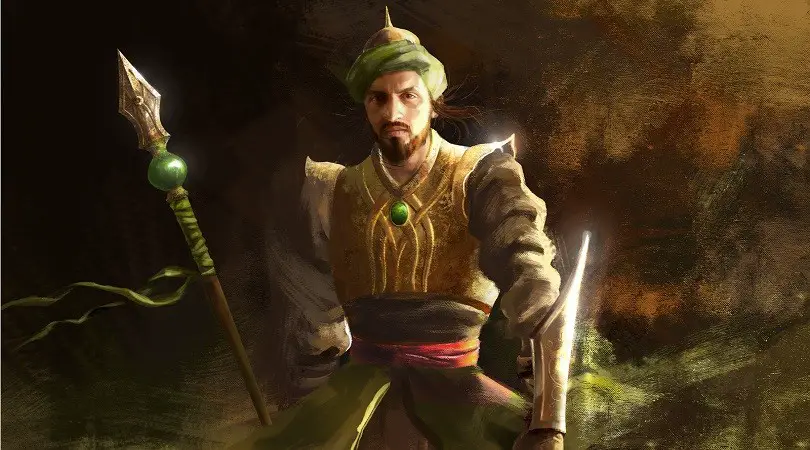Last Updated on January 6, 2025
The commander nicknamed the “Father of Conquest” is Alexander the Great, a renowned military leader and ruler in ancient Greece. Alexander III of Macedon is often referred to as the “Father of Conquest” due to his vast empire and successful military campaigns.
Alexander the Great, also known as Alexander III of Macedon, is considered one of the most influential military commanders in history. His conquests and empire-building activities have earned him the nickname “Father of Conquest. ” Born in 356 BC, Alexander the Great succeeded his father, King Philip II, and went on to conquer a vast territory that stretched from Greece to Egypt to India.
His military campaigns revolutionized warfare and set the foundation for the Hellenistic world. Alexander’s leadership, strategic brilliance, and ambition to create a unified empire are unparalleled, making him a legendary figure in history and a commander renowned for his conquests.

Alexander The Great: A Legendary Military Leader
Alexander the Great is widely regarded as the legendary military leader nicknamed “Father of Conquest. ” Known for his strategic prowess and military campaigns, he was a prominent figure in ancient Greece and left a lasting impact on the world.
Early Life And Upbringing
Alexander the Great was born in 356 B.C. in the city of Pella, the capital of the Kingdom of Macedonia. He was the son of King Philip II of Macedon and Queen Olympia. From an early age, Alexander showed great potential, receiving an education from renowned scholars, including the philosopher Aristotle.
As the heir to the throne, Alexander was groomed for leadership and military success. He learned about politics, military strategy, and diplomacy, which would later shape his conquests. His upbringing instilled in him a strong sense of ambition and a desire to expand the Macedonian empire.
Military Achievements And Conquests
Alexander the Great is known for his exceptional military prowess and his ability to lead his troops to victory. At the age of 20, he ascended to the throne after the assassination of his father, King Philip II. Under his leadership, Alexander embarked on an unprecedented military campaign that would reshape the known world.
One of his most notable conquests was the defeat of the mighty Persian Empire. He stood against the Persian King Darius III, winning decisive battles such as the Battle of Issus and the Battle of Gaugamela. Alexander’s army marched through Asia Minor, Egypt, and beyond, establishing a vast empire that stretched from Greece to India.
His military tactics and strategies were innovative for his time, utilizing a combination of cavalry, phalanx infantry, and siege warfare. He inspired loyalty and admiration among his troops, leading them to victory after victory. Alexander’s military brilliance and indomitable spirit earned him the nickname “Father of Conquest.”
Legacy And Impact On History
Alexander the Great’s legacy is far-reaching and continues to influence history to this day. His conquests spread Greek language, culture, and customs throughout the regions he conquered, a process known as Hellenization.
His empire laid the foundation for the Hellenistic Age, a period marked by the blending of Greek and Eastern cultures. The cities that Alexander founded, such as Alexandria in Egypt, became centers of learning and culture.
Furthermore, his military strategies inspired future generations of military leaders, shaping warfare for centuries. He is considered one of the greatest military minds in history, with his tactics studied and admired by generals and strategists to this day.
Alexander the Great’s leadership and conquests had a profound impact on the world, shaping the course of history and leaving behind a lasting legacy of military prowess and cultural diffusion.
Baibars: The Arabian Commander
Baibars, the commander of the Arabian civilization, is often nicknamed “The Father of Conquest. ” He was a renowned military leader of Turkic Kipchak origin who became the fourth Mamluk sultan of Egypt and Syria in the Bahri dynasty, succeeding Qutuz.
Baibars is known for his successes on the battlefield.
Introduction To Baibars
Baibars, also known as Abu al-Futuh, is the Arabian commander who has earned the illustrious nickname of “The Father of Conquest”. Born in 1223, Baibars rose to prominence as the fourth Mamluk Sultan of Egypt and Syria. His military prowess and strategic genius propelled him to become one of the most influential figures in the history of the Mamluk dynasty. Baibars’ legacy as a commander and conqueror is unparalleled, as his military campaigns and conquests have left an indelible mark on the annals of history.
Military Campaigns And Conquests
Throughout his illustrious career, Baibars led numerous military campaigns and achieved remarkable conquests that solidified his reputation as an exceptional commander. One of his most notable military exploits was the successful defense of Egypt against the Crusader armies during the Seventh Crusade. Baibars’ strategic brilliance and tactical mastery enabled him to repel the Crusaders, effectively thwarting their attempts to seize control of Egypt.
Moreover, Baibars launched offensives against the Mongols, who posed a significant threat to the Mamluk dynasty. His victories in battles like the Battle of Homs and the Battle of Ain Jalut demonstrated his military prowess and strategic acumen. Baibars’ leadership and superior command played a pivotal role in repelling the Mongol invasion and preserving the Syrian territories under Mamluk rule.
Furthermore, Baibars led conquests beyond the borders of Egypt and Syria, expanding the territories under Mamluk control. He successfully captured key cities, including Gaza, Jaffa, and Caesarea, further solidifying Mamluk influence in the region. Baibars’ military campaigns were characterized by meticulous planning, innovation in warfare, and efficient use of resources, all of which contributed to his remarkable success as a commander.
Influence On The Mamluk Dynasty
Baibars’ accomplishments as a commander had a profound and lasting impact on the Mamluk dynasty. His military successes not only safeguarded the Mamluk territories but also enhanced their power and influence in the region. Baibars’ victories against the Crusaders and the Mongols solidified Egypt and Syria as significant powerhouses in the Middle East, diminishing the influence of external powers.
Moreover, Baibars’ leadership and strategic vision strengthened the Mamluk military apparatus, making it one of the most formidable forces of the time. Under his guidance, the Mamluk army underwent significant reforms, introducing new military techniques, advanced weaponry, and enhanced training methods. These reforms laid the foundation for the military might of the Mamluk dynasty, ensuring their dominance in the region for years to come.
Baibars, the Arabian commander, rightfully holds the title of “The Father of Conquest”. His military campaigns and conquests not only showcased his exceptional command skills but also left an indelible mark on history. Baibars’ influence on the Mamluk dynasty ensured their continued dominance in the region, cementing his legacy as one of the greatest commanders of all time.
Comparing Alexander The Great And Baibars
Alexander the Great and Baibars, both renowned military leaders, have earned the nickname “Father of Conquest” due to their impressive accomplishments on the battlefield. While Alexander the Great hails from ancient Greece, Baibars was the commander of the Arabian civilization. Let’s dive deeper into their similarities in military strategies, as well as the contrasting historical contexts and civilizations they operated in, to evaluate their contributions to conquest.
Similarities In Military Strategies
Both Alexander the Great and Baibars employed similar military strategies that contributed to their success in conquest. Here are a few noteworthy similarities:
- Strategic planning: Both commanders were skilled strategists who meticulously planned their campaigns, taking into account various factors such as terrain, logistics, and enemy strengths and weaknesses.
- Rapid mobility: Alexander the Great and Baibars recognized the importance of maneuverability in warfare. They employed swift and agile cavalry units to outmaneuver their opponents and launch decisive attacks.
- Tactical adaptability: Both commanders displayed remarkable tactical flexibility. They were adept at adjusting their battle plans on the fly, capitalizing on emerging opportunities and effectively countering enemy tactics.
Contrasting Historical Contexts And Civilizations
Although Alexander the Great and Baibars shared certain military strategies, they operated in contrasting historical contexts and civilizations. Here are some key differences:
| Alexander the Great | Baibars |
|---|---|
| Ancient Greece | Arabian civilization |
| Conquests primarily in Europe, Asia, and Africa | Conquests in the Middle East and North Africa |
| Established the vast Hellenistic empire | Rose to power as the fourth Mamluk sultan of Egypt and Syria |
Evaluating Their Contributions To Conquest
Both Alexander the Great and Baibars played pivotal roles in expanding their respective empires through conquest. However, their contributions differed based on the regions they conquered and the lasting impact of their conquests.
Alexander the Great’s conquests spread Greek culture, language, and architecture across a vast territory, marking the beginning of the Hellenistic era. His empire served as a bridge between the East and the West, influencing civilizations for centuries to come.
Baibars, on the other hand, consolidated the Mamluk Sultanate and successfully repelled Crusader invasions while expanding Islamic influence in the region. His military successes contributed to the eventual decline of the Crusader’s presence in the Middle East.
While Alexander the Great and Baibars both earned the nickname “Father of Conquest,” their contributions to conquest and the legacies they left behind differed due to their historical contexts and civilizations. Nevertheless, both commanders showcased exceptional military prowess and leadership, leaving an indelible mark on the annals of history.
Frequently Asked Questions
Which Commander Is Nicknamed Carthage Guardian?
The commander nicknamed Carthage Guardian is Hannibal Barca.
Which Commander Is Known As The Commander Of Chaos?
The commander known as the commander of chaos is Commander Chaos.
Which Commander Was Known As The Celtic Rose?
The commander known as the Celtic Rose is Boudica. She was a prominent figure and military leader in Celtic history.
Which Commander Is Known As The Immortal Hammer?
The commander known as the “Immortal Hammer” is Charles Martel, also known as “The Hammer. ” He was a powerful military leader in Frankish politics.
Which Commander Is Nicknamed Carthage’s Guardian?
Hannibal Barca is the commander who is nicknamed Carthage’s Guardian.
What Two Major Works Are Attributed To Homer?
The two major works attributed to Homer are The Odyssey and The Iliad.
Conclusion
In the realm of conquest, one commander stands out as the ultimate figure: Baibars, the Sultan of Egypt and Syria. Known as the “Father of Conquest,” Baibars was a military genius of the Arabian civilization. His successes on the battlefield and his strategic leadership earned him this esteemed nickname.
Baibars is truly a legend that will forever be remembered for his remarkable achievements in the art of conquest.








